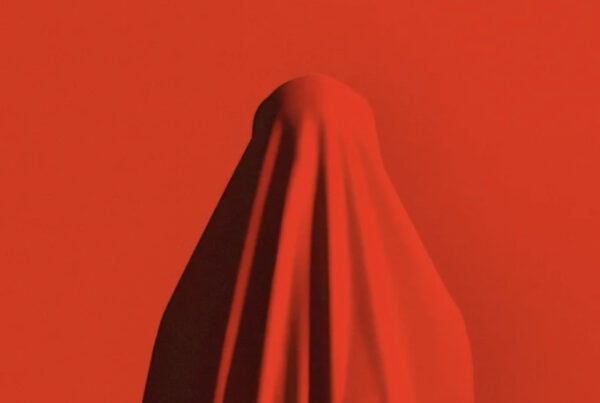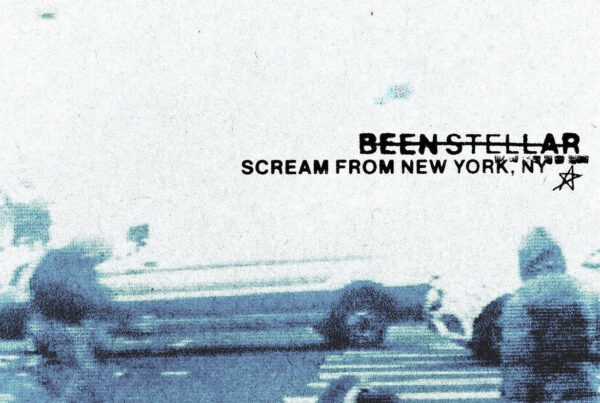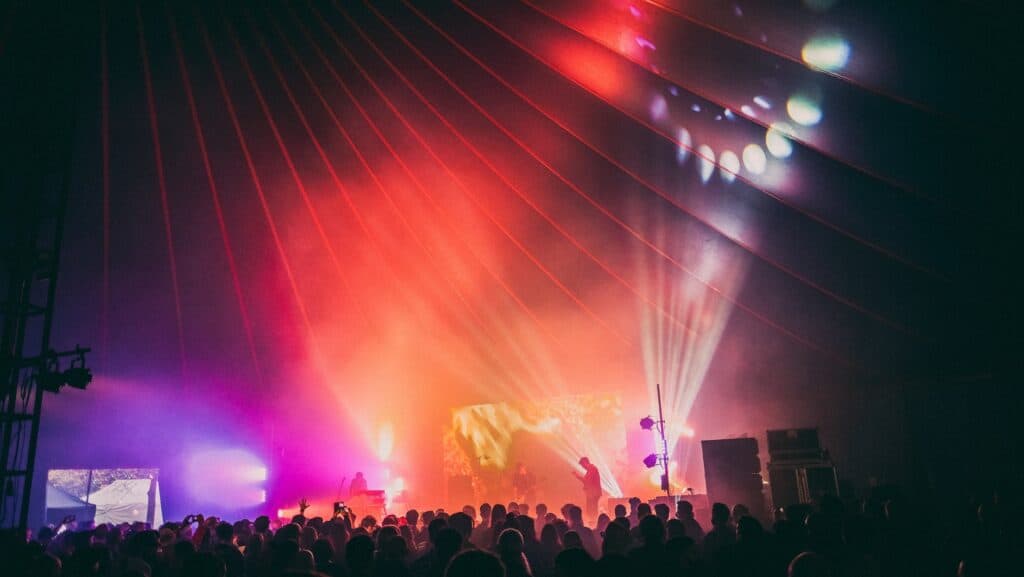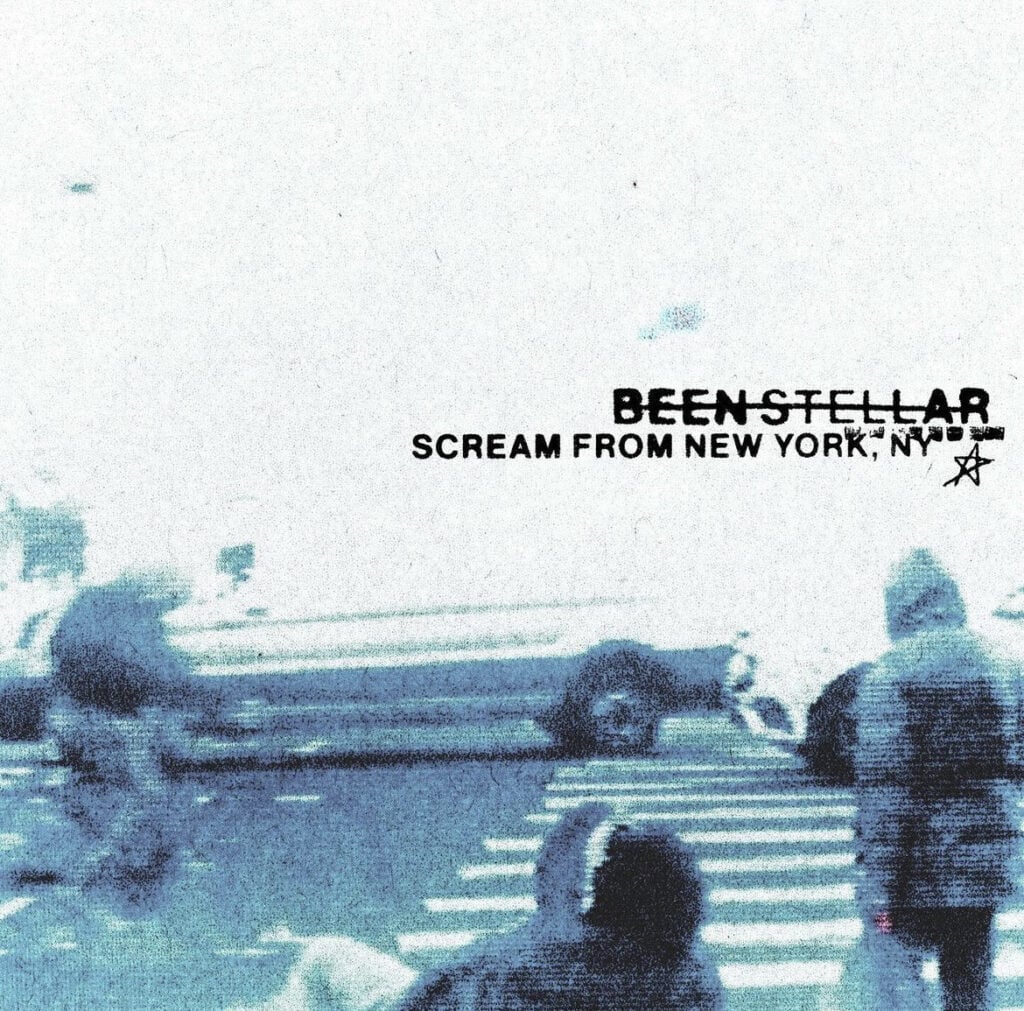In the first instalment of her two part discussion, our very own Faye Lewis takes a look at the impact that illegal downloads are having on the music industry.
The sometimes ill at ease relationship between music and music downloading has been known to ignite outspoken hostilities in the media for years. In fact, over the last decade the internet has provided a mass medium for music downloading – whether it has been Napster or disputes over DRM – it is one, which has had its fair share of run-ins with record labels and artists alike. When the trend towards downloading initially took place at the start of the ‘noughties,’ heavy metal band Metallica was among the first to launch an attack on the practice.

Speaking at the Senate Judiciary Committee on July 11, 2000, outspoken drummer Lars Ulrich condemned what he described as: “the taking of money from the pockets of all these members of the creative community. ”Lars’ criticism was attributed to the illegality of music downloading – which, Metallica felt personally affected by. “While completing work on a song for the movie Mission Impossible-2, we were startled to hear reports that a work-in- progress version was already being played on some U.S radio stations. We traced the source of this leak to a corporation called Napster.”Napster was the first online company that enabled consumers to browse, download and listen to music for free – a favourable way of accessing the music of some of the most talented artists – without the corporate middle man, or the mark- up price of CD’s. It also provided a platform for a change in the way music lovers consumed music, and sparked one of the longest ongoing battles between music, and the weight that music downloading has had over the last decade.
Lars added that he had many ‘issues’ with Napster. “First and foremost: Napster hijacked our music without asking. They never sought our permission – our catalogue of music simply became available as free downloads on the Napster system. “Remember too, that my band, Metallica, is fortunate enough to make a great living from what it does. Most artists are barely earning a decent wage and need every source of revenue available to scrape by. ”Lars was clearly taking no prisoners when he announced in the following terms: “Also keep in mind that the primary source of income for most songwriters is from the sale of records. “Every time a Napster enthusiast downloads a song, it takes money from the pockets of all these members of the creative community.”While Lars made the point that problems with copyright underpin the music industry, and that the issue of music downloading was badly handled, resulting in his artistic copyright being jeopardized – the premise that the industry and its artists were truly being harmed seemed harder to believe – and like many others I had few qualms as I clicked ‘download’ for my copy of Metallica’s ‘Better Than You.’
What was suggested by Metallica however was that a stimulus would need to be provided for the economic development of downloading – and not that musical downloading should be stopped entirely: “We have to find a way to welcome the technological advances and cost savings of the Internet while not destroying the artistic diversity and the international success that has made our intellectual property industries the greatest in the world. “Allowing our copyright protections to deteriorate is, in my view, bad policy, both economically and artistically.”In 2000, what Lars had made clear, was that copyright provided the incentive to create business, and that big labels and artists did suffer from digital downloads contributing to falling CD sales. But these advancements were certainly not born with Shawn Fanning’s launch of Napster in June of 1999. In the early years, the record industry seemed to be taken by surprise by digital music, and the attitude that was shown towards downloading was simply flippant – or in some cases – entirely ignorant. While the music industry may have been slow to pick up on advancing trends, other bands displayed a more savvy awareness of the impact that free digital downloading could offer. In the same year that Metallica filed a lawsuit against Napster, Smashing Pumpkins released their final album Machina II/ The Friends and Enemies of Modern Music through the Internet, for free before they split up. Cleverly marketing the album as a lead on from its predecessor Machina/ The Machine Guns of God (which reached number 3 in the US charts in its first week) the album was downloaded by millions of fans from the band’s website.This set the trend of musical downloading long before Radiohead’s 2007 pay-what-you-like experiment for their album In Rainbows, and other artists have been quick to profit from the manipulation of free downloading. On March 2, 2008, Trent Reznor, of NIN released Ghosts I–IV, a 36-track instrumental album via his website nin.com.

The album was the seventh studio album recorded by the band, and was the first release after the band decided to sever its ties with the label Interscope Records, in order to release music independently. On the website, NIN made the following statement to fans: “As a thank you to our fans for your continued support, we are giving away the new nine inch nails album one hundred percent free, exclusively via nin.com.”A fine sentiment indeed, and as promised, the album was released in several formats that included ‘high-quality MP3, FLAC, or M4A lossless at CD quality and even higher than CD quality 24/96 Wave – all free.’As well as the impressive range of digital downloading the band also announced: “For those of you interested in physical products, fear not, we plan to make a version of this release available on CD and vinyl in July.” In the case of the physical album, NIN released a 10 double CD set, a $75 deluxe edition set and a $300 Ultra-Deluxe limited edition package.Notwithstanding this fan-friendly philanthropy, NIN’s actual intentions appear to be guided by a more commercial principle. Ghosts I–IV was a continuation of Reznor’s experimentation and interest with digital distribution, and for the most part – it paid off. A week after the album’s release, the official Nine Inch Nails site reported over 750,000 purchases and download transactions, amassing over 1.6 million dollars in sales. Pre-orders of the $300 “Ultra-Deluxe Limited Edition” also sold out in less than three days of its release.
There were however teething problems in the early days of the downloading. The album’s initial release on the website suffered difficulties due to an inundation of traffic, and this meant that the site was not was not able to be fully operational until March, when extra servers were added to handle the influx of downloader’s. The band also set up certain legal safety nets, to protect their artistic rights – something Lars would surely appreciate. – And in an interview with Spinner Magazine, on March 25, 2008, Trent Reznor defended his decision to release the album under the creative commons license, which allows people to use the music for non-commercial purposes without penalty, saying: “It’s a stance we’re taking. With all of the nonsense that’s going on these days … I can’t change the world, but I can do what I think is right.
“If the golden rule of every action is to target the right audience in order to do what is right, then Trent Reznor also used his influence in publicizing lesser known artist Saul Williams, through the aid of the NIN website and newsletter.In 2007, preceding the NIN release of Ghosts I –IV, Reznor collaborated with hip-hop artist Williams on his 15 track, 2007 album The Inevitable Rise and Liberation of NiggyTardust! – urging fans to support him stating: “Saul’s not the household name (yet!) that Radiohead are.”
Following on from the success of Radiohead’s 2007 album In Rainbows, Williams’ album was made available (primarily) for download only from the website NiggyTardust.com, either for free or for a $5 charge – which was placed as a way of showing support for the artist. Two months after the album’s release, on January 2, 2008 nin.com announced that 154,449 people had opted for downloading NiggyTardust, and from that 28,322 people paid the asking price of $5 USD, which amounted to a sum of $141,610. Although this proved to be a contrast with Saul’s self-titled album that has sold 30,000 copies since its 2004 release – in an interview with CNET News.com, Reznor admitted that he expected a larger number of people to dig into their wallets to support good music.Only three years on, and Saul has seen a musical turnaround thanks – in part – to online publicity and downloading, a conception that 15 years ago most music big wigs would fail to predict, (or notice). Operationally the ploy to encourage the sale of ‘free’ downloads is practically corporate.
In the case of In Rainbows, Bryce Edge, of Courtyard Management told Music Week, the UK’s trade industry magazine: “If we didn’t believe that when people hear the music they will want to buy the CD, then we wouldn’t do what we are doing.” Cynically, given Radiohead’s critique of their songs ‘leaking’ to consumers in advance of their release, and their reason for releasing free downloads being used as a preventative for that happening – the associations of free downloads in any charitable sense is somehow overridden by Bryce Edge’s claims that it is in the name of profit. While the music industry thrives on making money, it tends to discredit and vilify the stance of the artists’ integrity as being nothing more than disingenuous waffle. But can free downloading provide a springboard for lesser-known artists?
Or does it simply make it harder to get recognition amongst so many others desperately trying to launch their own careers through new platforms provided by the Internet? There are a number of sites that provide musicians with the opportunity to release music through an assortment of ways. One such example of this, is the website Music Glue which markets itself as a: ‘Free to use online marketing and retail service that provides artists and record labels with all the tools required to release digital music globally in a way that engages internet savvy fans that currently expect to get their music for free.’ Through the aid of P2P networks, Music Glue allows budding musicians to distribute free music to millions of fans worldwide, and sells MP3’s directly to consumers via P2P, social networks and websites – all at a price set by the seller. The site also claims to give members the chance to ‘build detailed and extensive fan databases which are owned by the seller.’ This contrasts with other popular networking sites like Facebook or MySpace, which can be exported at any time.
There are also options like forcing the sales of ‘bundles’ instead of single tracks in order to encourage the appreciation of the ‘body of work’ as opposed to just ‘radio singles.’ Music Glue seeks to present new opportunities for artists, knowing that there is little chance for building working relationships between unsigned artists and any of the large companies such as Sony BMG, Warner Music or EMI. Instead Music Glue experiments with a new independent form of business model – and boasts the success of free downloads from artists like Feeder, Bowling for Soup and Spargo. Music Glue is in some ways unique when compared to the relatively low levels of exposure given to it as oppose to those of Facebook and MySpace which seem to be constantly in the media eye. Indeed, for those not in the know, most of what is being offered up by the company can – despite the distribution of free music to millions of fans – seem elitist and non inclusive. Here lies a problem which is right at the heart of 21st-century music production.
As it stands there is a divide between people who are network and computerspeak literate and those that aren’t. And, a few years ago the problem with online music sites was that the music industry were among those unaware of the rapidly growing number of people latching on to the benefits of social networking sites in the selling and cultural communication of music. The most popular social networking sites such as MySpace have provided a means for free music distribution with the potential to engage millions of fans worldwide for a long time. Many of who have indeed done just that, before record labels are even aware of them. Not bad for mediums that scarcely existed five years ago – and now provide a massive growth area in the online music market for bands to launch a career. In January, 2007, Mika, was number one in the UK music charts, filling the airwaves with the sounds of ‘Grace Kelly.’ At the same time, musical history was made when Koopa, a pop-punk trio from Essex became the first band to reach number one in the music download charts – the first of their kind in the UK, with their download only single Blag, Steal or Borrow. “It proves you can get somewhere on your own in this world. You don’t necessarily need record label backing to make a mark in the industry” believes vocalist and guitar player Ollie.
It sounds, I suggest that the internet was pivotal in launching the career of Koopa: “It took a while for us to take it all in really, but it shows the power of the internet and also the dedication that our fans have to us.” recalls drummer Stu. Only one year on and the phenomenon of reaching number one continues to insist that musical downloading is not only one of the most important means of forging a career in music, but also in satisfying popular interest. When the band talks about the sustainability of record sales, it is without doubt that the internet has impacted on the sales of CD’s. As bassist Joe says: “Music downloading has been the main way we sell our songs really. Other than the odd CD at gigs and stuff it’s all about the downloads. And it would take us ages to sell 10-15 thousand CD’s at gigs! ”Despite the cultural phenomenon of a band that first and foremost formed an online fan basis, their appeal has not been hindered by this and restricted to the World Wide Web. “We get quite a lot people at our live gigs. It depends where we’re playing really, but our audiences have certainly increased in the last year or so. We usually sell out places in Essex where we come from and in a few places up North, but even when we don’t sell them out, they’re reasonably full nowadays.”After reaching number one in the download music charts, the band still takes heart from small achievements. “We would like to continue to write record and perform music” says Joe, and this sentiment is echoed by Ollie and Stu who admit: “We’re content with the way we are and the way things are going, so we will carry on working hard. If we earn enough money to carry on doing this for a while then we will be happy.”When it comes to the ‘ownership’ of music, front man Phil Etheridge of Indie band The Twang thinks its part of the modern music industry in which downloading is now firmly cemented. “Twice as many people will own your album than will have bought it. I accept that and it’s fine, I don’t see this as a negative thing. At the end of the day it is one way of people listening to your music.” The conversation we’re having turns to bands that are fortunate enough to be able to release music on the cheap; the relatively recent influx of artist turned philanthropist in music, and the regularity to which free albums are becoming commonplace. “Radiohead are able to do it, the same with The Charlatans. It’s a great idea, a publicity campaign – something which may not have generated quite as much interest like the release of an album has now got a lot more publicity. It’s good that they can get away with it and pull it off.
“Plus what Radiohead did was pretty unique and it certainly won’t do them any harm. The CD is being sold in shops and it’s a really good album.”Speaking of the longevity of music downloading, Phil is quick to distance himself from the practice – but it is a practice built on personal taste: “I don’t download simply because I prefer owning the CD. Even if I am on tour, I prefer to have a CD rather than a download. I want something to show off for my money and a lot of fans are the same.”There are a lot of reasons to dismiss downloading, but it is almost apologetically that Phil speaks of CD formats, as though they are as antiquated as gramophones – or phonographs – if you prefer. “I collect CD’s and vinyl’s, we release some of our singles on vinyl and there is a market for them and they sell very well. Besides, there’s still the snobbery side to it. I want a wall in my house filled with CD’s – it’s become an art form for me, proudly displaying my CD collection.”
In a sense, vinyl and CD sales have entered into the conflict between promotion and creativity. As far as giving away free music to fans goes, there are obvious benefits, but as Phil says: “I don’t care too much for the promotion of the band, it’s up to the label for promotions. However I doubt at this stage they’re going to give away CD’s. Not ours anyway! “He’s not alone in his thinking that bands that are signed to a label but are not as large as Radiohead necessarily have the same luxury. And although the internet is often considered the apex in sophisticated cultural transmission, it is still not without its subtle failings. George Allen, Head of Extreme Music Production, maintains that the promotional side to artist management is just as important now as it has ever been: “If a band has the resources of a label behind them, then promotion is set up around a tour to include, street teamers, who give away badges, flyers, and posters. There is also national advertising, local promotion, such as in-store performances at record shops, and sessions at local radio stations.
“If the band is unsigned, then the internet can serve as a great place to advertise for free, but they would be struggling to get the sort of opportunities that are available to bands that are signed.”Instead it his belief that unsigned bands are still drawn to more tried and tested methods of receiving publicity, which do not necessarily launch their careers overnight: “Many local radio stations and Radio 1 support new and unsigned bands. Unsigned bands have to work very hard to get the sort of attention that signed bands could pull off.”So, although bands like Koopa may have been streamlined into popular culture via the internet, Allen believes this may not be the feel-good-story of other artists getting gigs, despite the advantages of fans downloading their music digitally: “Although a band can be huge on MySpace, it does not show in the attendance at gigs. People have huge choice these days and unless there is a buzz around a band, which can be generated by A&R scouts, there is no sure way of filling a venue, just because you have had 100,000 hits on MySpace. “What is useful are companies like tunecore.com who upload tracks onto iTunes. Any band can do this, and if well promoted, can bring in some revenue, and appear very pro. The advantage of MySpace is that a promoter can listen to band in two minutes, and decide whether to book them although this only applies to the smaller unsigned scale gigs.”Allen, who is responsible for the production of artists like The Magic Numbers – thinks that fans are becoming more lack lustre in their efforts to support live music.
“If anything there is too much choice and the live sector is slowing down currently. “This summer, several festivals have been cancelled due to poor ticket sales. Look at Glastonbury, which was not sold out this year for example.“The public are very fickle when it comes to bands, and tend to support them whilst they are hot, and go to the next band a month later that are all the rage. Although I’m not condemning everyone – fans of older bands can be very loyal and supportive!” As an unsigned band building a continuing fan basis, that have had marginal success in 2008 supporting more well known bands like Just Jack and The Hoax. Get Vegas admit that there’s a “tremendous amount of pressure” on bands to make their music complimentary to download, and to even do gigs for free. Front man Johnny discloses that this is all part of a modest expectation placed on unsigned bands: “As you try and build up a name for yourself, having your music for free makes you instantly more appealing.
“To the band, CD’s are perhaps becoming the stuff of nostalgia – and they recognize that “CD sales are constantly falling every year, but more and more people are paying for downloads.” The expansion of downloading is not all bad, despite the principle that: “There will always be people illegally downloading music because you can’t control the internet.” He also concedes: “That the knock on effect of this is more and more people are attending live festivals and live concerts than ever before.” So, in the wake of musical downloading are fans breaking into the echelons of music festivals to see live music? Ross Millard, vocalist and guitarist of post-punk band The Futureheads, has become known for his forthright opinions on music downloading and its effect on live shows – appreciating the financial risk taken by bands wishing to release downloads for free. Speaking candidly on the subject of downloading and the future of music, Ross acknowledges that: “There has certainly been an increase in the amount of people at gigs over the last ten years. You can see that from the ratio of bands that play huge venues versus the amount of records they sell.“ In 1994, when Blur scooped numerous Brit Awards and had released one of the most culturally significant records of the decade in ‘Parklife’, their ‘big’ London show was at Alexandra Palace, which holds 10,000 people. That was at the height of their campaign and had come after numerous tours of that record in smaller venues. Nowadays, a band like Interpol, who have comparatively sold very little, can come across from the States and play one or two nights there – and they must have sold less than 1/20th of what Parklife did.

”Having spent the last decade traipsing in and out of music venues, there is an undeniable truth that lesser known bands are managing to get fans to fill up the huge concert halls of the world to hear them play. But is it just reactionary, a by-product of a well-oiled management and publicity team, or do they genuinely want to be there? Ross turns to the recent accelerated interest of festivals to answer: “There are too many festivals these days. And it has all sprung from the attitude amongst promoters that there are kids who will go to two or three over the summer. That is why – inevitably – every year there are two or three disaster stories about festivals cancelling at the last moment due to poor ticket sales. “There is a fine balance to strike between ‘more’ and ‘too much.’Has this hyper acceleration in festival attendance got anything to do with the ease and mass in which digital downloads – particularly free ones – are available?“Free downloading is an odd phenomenon to me, because if someone is told that something is worth nothing, then that’s what they will believe. This is why there are millions of kids sat at home with 200 gigabytes of music on their computers, and they will probably be unfamiliar with 99% of it.“Free downloading hasn’t necessarily brought about a more music-minded youth, but it has, I think, created a more agitated, less-attentive, ‘more more more’ attitude in a portion of younger gig-goers.” But there must be some benefits… “The benefit of giving out an ‘official’ free download, in our case was to provide the hardcore fan of our band with a taste of what the new record would be like – proof that we had finished the album.
“The download kick-starts an amount of ‘buzz’ that you’re back, and when you announce a tour subsequently, people are a little more jumped-up on it than they perhaps would have been.“We used a free download as a kind of ‘news service’ to our fans and the press that we were on our way back.”What were the main losses that you encountered with the release of a ‘free’ single? “The down side to all of this is the lack of incoming revenue from sales, which seeing as in our case we are both the artist and the label, is quite a significant thing. It affects the way you perceive your music, because that lack of revenue forces you into deciding whether or not to throw money into mass-marketing under the blind faith that the record will have mainstream appeal.”But in a situation like that what would the alternative be? “We had to decide whether we should keep our costs low, and give ourselves more of a chance to break even, or even profiting from a record that will not sell vast amounts but has a word-of-mouth appeal. “I heard a frightening statistic the other day – record companies spend more money on trying to get a record from No. 5 in the chart to No. one, than on anything else. They also lose more money on a record that goes from No. fiive to No. one than on any other record as well. “That proves at NUL records that it’s pointless business to force feed the world a particular record, because financially it costs more to get it to the top than what you stand to gain from such a chart position.“I believe that downloads have affected CD sales to such an extent that the marketing of major-label music is undergoing something of a crisis at the moment, which it shows no signs of creeping out of.”With the price of a download single being as cheap as 79p did CD singles really have a chance?“You would be hard pushed to find someone who thinks 79p for a song is excessive, especially when in the past they would pay upwards of £3 for a CD single… which justifies and explains the reason for CD singles becoming the dinosaurs of modern music.“When Woolworths decided to stop stocking them earlier this year, I think the music industry in the UK decided with them that practically all production of CD singles would cease, submitting to the digital world.“Albums on the other hand – to me it’s practically pointless buying a full-length record from iTunes, because for nigh on the same money, you can get a physical, pleasing to look at and hold, bona fide record. You can still put that record onto your iPod – bit it also exists. It is finite – and not just some file that will eventually become outmoded. “Perhaps it’s a generational thing, but to me, I would always prefer a physical album, as that presents much better value for money to me – especially now, seeing as bands have been forced to put extra effort into ‘package’ and artwork. In terms of your CD sales, has downloading impacted heavily? “Without a doubt. Downloading has directly – and of course indirectly – affected our sales; but it is still a fair test because it’s the same for everybody – illegal downloads are as much a part of the industry as radio play and press marketing.
“We (The Futureheads) have a blasé stance on free downloads, because especially for back-catalogue stuff, we are all guilty of indulging in it from time to time.“If a kid downloads our entire back catalogue and then pays £12 to see us live, and buys a t-shirt, then the trade off is fair, and I don’t mind him owning all our music for free. “If the same kid downloads all our music for free and puts nothing back into the pot, then we can be safe to say that he probably wouldn’t have ever chosen to pay money for the record at any time, whether it be 2008 or 1986. So again it’s hard to get angry about it.”Do you take this stance on every element of online filesharing?“Filesharing is, in its essence, a punk-rock thing – it is community based, and, arguably culturally educational. It’s not much different from the mix-tape trading circles I used to be part of in the 90’s. The music industry has conned a lot of people over the years with inflated sales figures, and sound-scan cheats, so illegal downloading negatively impacting on sales is just another counter-culture revolution gone mainstream. Problem is, the major labels don’t know what to do to keep their revenue up.”But in a world where digital shows no signs of disappearing, surely major labels they will have no choice but to accommodate the needs of a digital age of consumers?“ Digital is putting an end to second-hand independent record shops. Even the HMV’s will go more heavily into DVD, games and iPods, so selling CD’s will be one of its many, many faces.“The chart will need to be modified – even more than it already has been, because in the singles world, you get the same 40 tracks – give or take, battling it out for numerous weeks, making it increasingly difficult for new entries of anything other than the pop category. I mean, last year, Take That had a song in the top 40 for around 40 weeks – that’s crazy! “It’s getting harder and harder to be subversive in the world of pop!”
DO YOU HAVE SOMETHING TO SAY ON THIS ISSUE? EMAIL US DIRECTLY AT [email protected]






